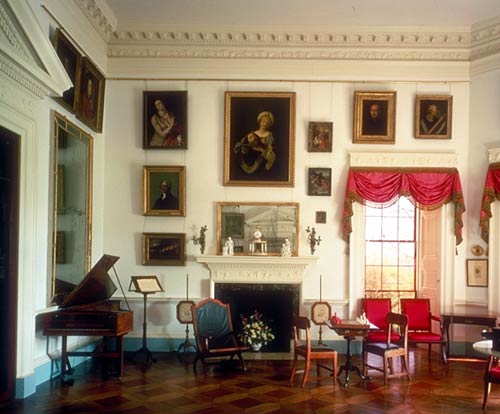The Rise of the Aristocrat: an Evo-Exchange Perspective
Toward the end of my diary about Evolutionary Social Exchange Theory (or "Evo-Exchange Theory"), I stated that
"... as groups increase in size, and in their capacity to exceed basic expectations, they do become able to support formal, full-time administrative roles. At that point, formal political arrangements -- governments -- arise and assume responsibility for effectively ensuring that the expected economic and/or social benefits are secured for group members."
I could not say how it happened that these administrators arose, but I observed that they did arise, nonetheless.
Simon Powers now has explained, from what I see as a Social Exchange perspective, one way these administrators could have arisen in the transition from hunter-gathering groups to agricultural groups:
"Although the role of irrigation systems in creating despotic states has been overstated in the past, they certainly would have created an opportunity for would-be leaders to behave entrepreneurially by managing their construction. Those that chose to follow their agricultural-technologist leader would then benefit from access to irrigation. This would provide the benefit of increased food production, enhancing both their quality of life and the number of surviving offspring they could produce.
"In this way, social hierarchy could initially arise voluntarily – because individuals that chose to follow the leader were materially better off than those that did not."
Powers reports that his model simulations explain how this hierarchical exchange becomes entrenched. First, the benefit of more food leads to a population increase, as more offspring are able to survive. The population increase, in turn, increases the farmer's cost of terminating the exchange, by decreasing the amount of land not subject to the exchange arrangement. Second, terminating the exchange costs the farmer all of his previous investments associated with the exchange.
I note that these conditions also strengthen the position of the leader, vis-a-vis his farmers. First, for the reasons mentioned by Powers, the farmers are pretty much stuck with the leader, even if he begins to exploit them. Second, given an increase in the farming population, there will be decreased cost to the leader if some farmers decide to terminate the exchange and move away.
With this, the Aristocrat has arrived.
I can imagine a similar result arising in a violent territory on the basis of a warrior offering protection to farmers in exchange for support.
But the story does not end there. The Commoners will continue to hold the Aristocrat to his end of the bargain, which is to ensure that they receive the social and economic benefits they have come to expect. To quote my earlier diary,
"As I see it, the fate of the political arrangement, and possibly the group's survival, depends on the degree to which the group meets the benefit expectations of its members. If member expectations are NOT met, then members will be frustrated and either fight the political arrangement or flee."
I'm currently working on a diary which considers this circumstance in greater detail.
(h/t to rawstroy.com, where I first saw Simon Powers' article reported)
Labels: evo-exchange theory, evolutionary social exchange theory, Simon Powers, social stratification, sociology



